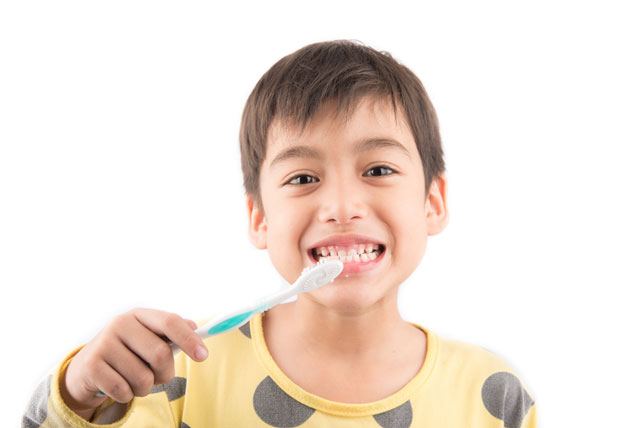Entering a pediatric dental office can feel like stepping into another world. Your child might note the colorful walls, the hum of dental instruments, and the air’s clean scent. Pediatric dental offices take a lot of care to create a welcoming space for their little patients. For many children, this purposefully designed environment helps ease dental anxiety and create a feeling of both safety and fun.
Of course, for children with autism spectrum disorder (ASD) or individual sensory issues, the sounds, smells, sights, and sensations can be overwhelming. Are you struggling to maintain a healthy oral health routine for your child? Read on to learn dental options, tips, and tricks for children with sensory issues.
What is Sensory Integration?
Sensory integration is how a person uses his or her five senses to process external stimuli. For those experiencing sensory processing disorders, this can impact daily routines and, thus, oral health.
It’s important to differentiate between “sensory seekers” and “sensory avoiders.” Sensory seekers gravitate towards specific sensory input, which can make teeth brushing a soothing experience. Dental visits aren’t typically as challenging for sensory seekers. However, sensory avoiders tend to process certain external stimuli as either irritating or painful. This can make trips to the dentist very overwhelming and can result in such behaviors as crying, hitting, biting, or moving.
Preparing for a Trip to the Dentist
If you anticipate that your child might have some dental anxiety, schedule a tour of the dental office before his or her appointment. This provides your child with the opportunity to become a bit more familiarized with the environment.
At this tour, feel free to speak with the dental team to let them know your concerns and your child’s specific needs. Let the staff know your child’s particular sensitivities and preferences, as well as past dental experiences. This information will help your dentist and hygienist better prepare and set your little one up for success.
Another proactive approach is to read your child a social story or visual chart a week or so before his or her visit. These stories outline the steps of a dental appointment and allow time for your child to ask clarifying questions.
At the Dentist
Once at the dental appointment, ideally, there has been communication with the office team, so they are better prepared to make your child have a comfortable visit. This may include scheduling an extended time slot to allow your child extra time to acclimate. . Private rooms are also an option if you would like an environment with less stimuli.
Some pediatric dental offices will take special care by providing accommodations. Such accommodations can include sunglasses, noise-canceling headphones, weighted blankets, sound machines, turning off overhead lights, and decluttering workspaces.
Teeth Brushing at Home
For sensory seekers, tooth brushing might produce a calming effect. To ensure your child carefully brushes all teeth, consider using an electric toothbrush, and sing a song while they brush his or her teeth. You want to take your time brushing over 2-3 minutes.
For sensory avoiders, teeth brushing might be a daily battle. The flavor of toothpaste may be overstimulating. It may be worth looking into unflavored toothpaste options—or even simply using water with no toothpaste.
Are you looking for a welcoming, caring dental office?
Children’s Dental Specialities in Worcester, Massachusetts, welcomes children with sensory issues. Dr. Dan and his staff work diligently to create an environment that is a safe space for all children. If you have any questions or concerns, please reach out to schedule a tour, consultation, or appointment today!







